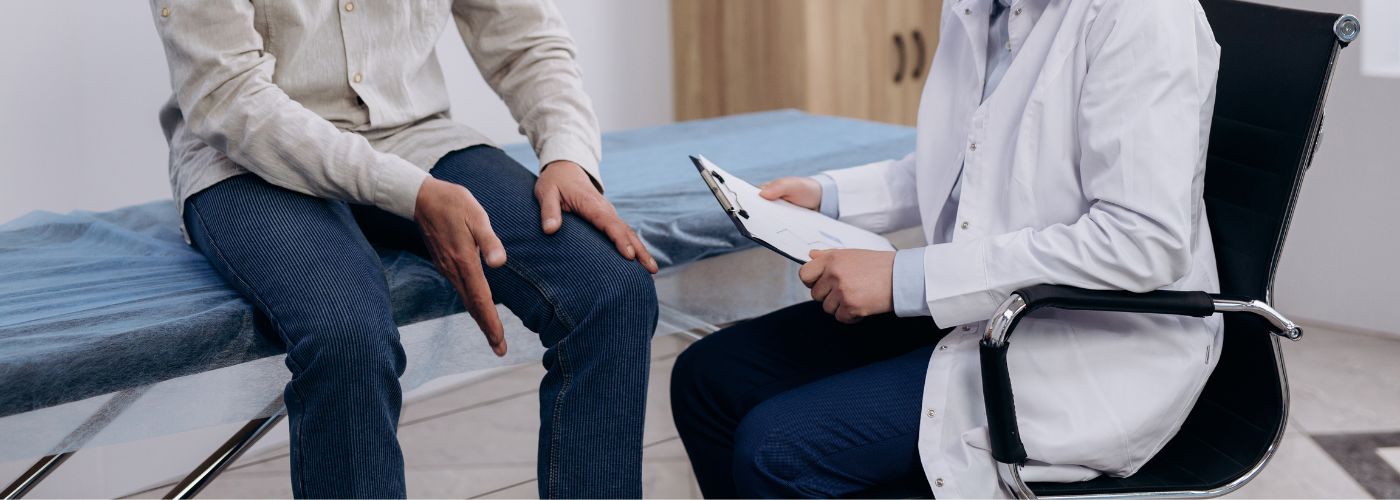Knee pain can be incredibly frustrating and have a major impact on your quality of life. It is important to understand the various causes of knee pain in order to effectively treat it and prevent it from occurring. While some knee pain can be attributed to traumatic injuries, there are also many other possible causes. This article will explore some of the most common causes of knee pain.
How To Help Knee Pain

Knee pain can be one of the most debilitating conditions, preventing everyday physical activities such as walking and even sitting. Fortunately, there are a variety of treatments that can help reduce knee pain and improve overall joint health.
One way to reduce knee pain is by using a knee wrap and doing exercises that target the muscles around the affected area. Strengthening these muscles helps protect the knee joint from further damage and reduces stress on the joint itself. Additionally, regular stretching and flexibility exercises can also help increase the joint range of motion and decrease stiffness in areas near the affected knee. It’s important to talk with your doctor before starting any new exercise regimen to ensure you’re doing movements safely and correctly.
In addition to physical activity, medications may be prescribed to provide relief from inflammation or arthritis-related symptoms associated with knee pain.
Can Sciatica Cause Knee Pain?
Sciatica is a common condition that causes radiating pain along the sciatic nerve, which runs from your lower back down to the back of each leg. This can cause pain in several areas, including your knee. In some cases, the pain may be localized in the knee and not radiate beyond it. It’s important to understand how sciatica can cause knee pain and what you can do about it.
The sciatic nerve is composed of several spinal nerves that originate from discs located between vertebrae in your lower back. When these nerves become compressed or irritated, they can cause radiating pain along the path of the sciatic nerve.
The irritation or compression can occur due to an injury such as a herniated disc or bone spur. As well as from prolonged sitting or standing positions or any activities that put a strain on your back muscles.
Which Doctor To See For Knee Pain

Knee pain is a common problem that can be caused by a variety of issues. From strains, sprains, and tears to arthritis and other chronic conditions, it’s important to know which type of doctor to see for knee pain.
Depending on the severity and cause of your knee pain, you may need to see a primary care physician, an orthopedic doctor, or a physical therapist.
If the knee pain is mild with no swelling or redness, then it’s likely due to overuse or minor injury and you should start by seeing your primary care physician. They have expertise in diagnosing and treating general medical conditions like muscle aches, tendonitis, and bursitis. As well as providing advice about exercise programs that may reduce discomfort.
A doctor may prescribe rehabilitation along with the use of TENS & EMS devices. These medical devices work with your body to prevent pain signals from reaching the brain and help blood circulation to potentially heal damaged muscle tissue.
Is Cycling Good For Knee Pain
Cycling is a great way to stay in shape, and it may also help with knee pain. Exercising on a stationary bike is an effective way to reduce the amount of stress and strain placed on your knees while working out. Studies have also found that cycling strengthens muscles around the joints. Which can provide additional benefits for those suffering from knee pain.
This low-impact exercise is an ideal choice for people dealing with chronic knee discomfort or injury. Regular cycling helps increase mobility and flexibility in the affected area. As well as strengthen the muscles that support your knees and hips.
It’s important to remember though, not all types of cycling are beneficial. Be sure to consult with a doctor or physical therapist before beginning any aerobic activity if you’re experiencing persistent joint pain.

Related Stories
Massage Gun Showdown: How the Power Duo Compares to Traditional Methods
Have you ever considered that a handheld device could revolutionize your muscle recovery? With the...
Jun
Fatherly Fitness Tips For Men’s Health Month
Men’s Health Month is more than a date on the calendar—it’s a call to action....
Jun
Built to Move: The Everyday Recovery Edit
Movement is what keeps us going—literally. Whether it’s recovering after a run, loosening up after...
Jun
Unlocking The Secret To Tissue Injury Recovery With TENS/EMS Devices
Have you ever wondered why some injuries take longer to heal than others? Tissue injuries...
May
Get Mobile With HiDow TriggerFlex Tools & TriggerFlex 2.0
Tight muscles holding you back? Whether you’re dealing with daily tension or post-workout soreness, recovery...
May
Mind Over Pain: The Surprising Benefits of TENS/EMS for Mental Wellness
Have you ever wondered if managing pain could also boost your mental state? Many people...
Apr